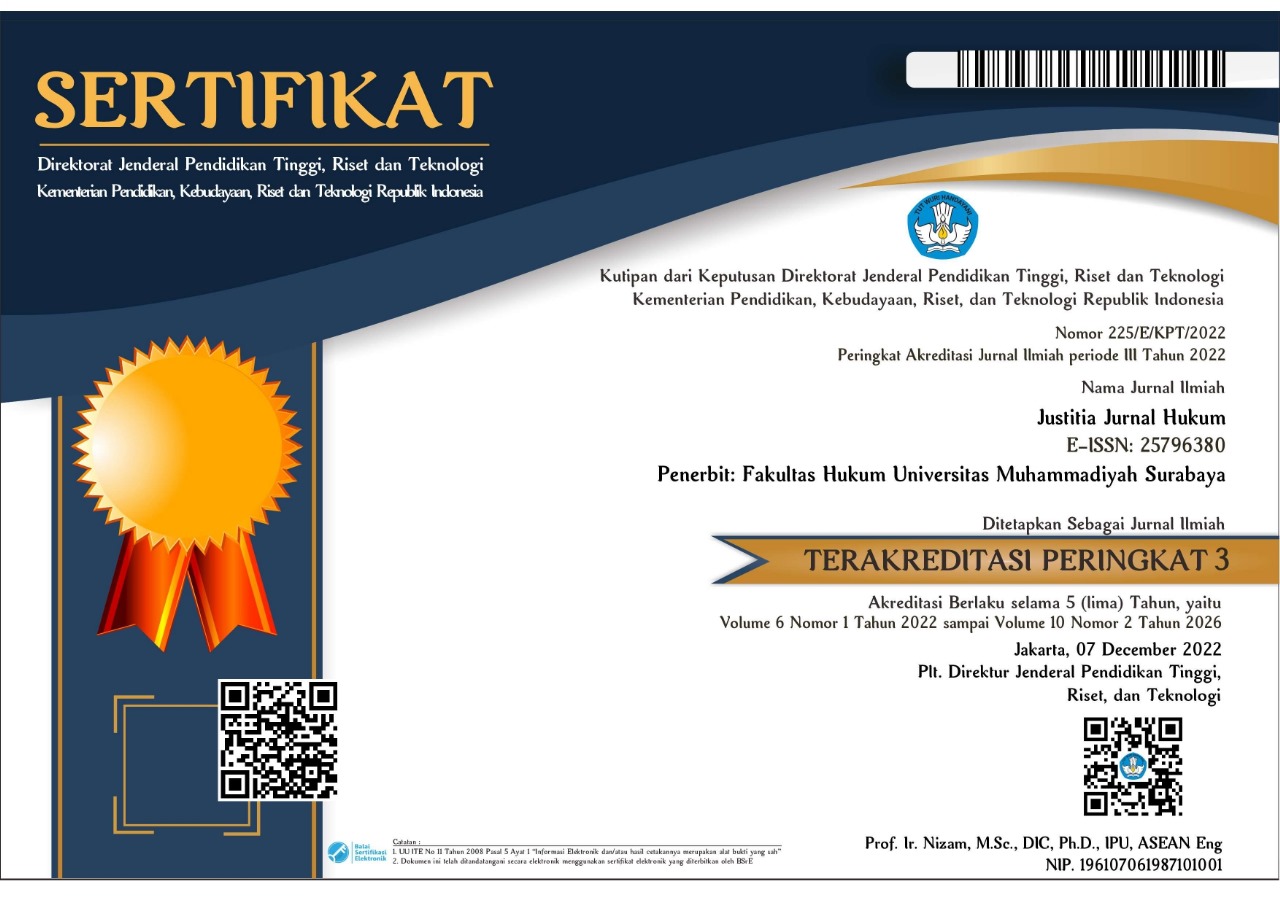Quick Menu
Peer Review Process
Peer review at Justitia Jurnal Hukum is carried out in accordance with the standards of academic publishing, this rigorous process aims to ensure that not just any article, only articles that have quality and are in accordance with the focus of the journal will be published, the most important is the contribution to the advancement of legal science. the following is a detailed explanation of the peer review process;
- Submission - the author submits his/her research paper to Justitia Jurnal Hukum for consideration. all articles submitted to Justitia Jurnal Hukum must comply with the focus & scope, writing guidelines, and templates.
- Editorial Assessment - after the author has submitted the article, the Editor conducts an initial assessment, this is done to identify suitability in order to enter the next stage. some things that will be reviewed first include (1) the scope of the article, (2) originality, (3) research methods used, (4) compliance with the writing guidelines in Justitia Jurnal Hukum, and (5) conformity with the manuscript template. Furthermore, the editor will conduct an assessment according to the assessment indicators that have been made, if the editor judges that your article does not comply with the guidelines in Justitia Jurnal Hukum, or the score is below the standard, then your article will be rejected at that time. but if it is appropriate and accepted, then your article will go to the next stage.
- Peer Review Assigment - if the manuscript passes the initial assessment, then the editor will assign at least 2 expert reviewers, the reviewers' expertise is adjusted to the theme discussed in the manuscript. these reviewers are on average lecturers, researchers, and practitioners.
- Peer Review Process - These peer reviewers have in-depth knowledge in the relevant field. They will evaluate thoroughly review the content of the manuscript and provide feedback to the editor. some of the things that are highlighted include the theoretical framework, clarity of argument, research methodology, data analysis, validity of findings, and significance. This process is a critical step to ensure that published scientific knowledge is reliable and of high quality.
- Reviewer Recommendation - based on the results of this review, the reviewer will provide a recommendation, which can be, (1) Accepted, (2) accepted with minor revisions, (3) accepted with major revisions, and (4) rejected.
- Author Revision - if the reviewer makes a recommendation for revision (be it a minor revision, or a major revision), the author should respond to the reviewer's comments and suggestions, making the necessary revisions to improve the quality of the article. They can also provide a response letter to the editor, explaining the changes made in response to the reviewer's feedback.
- Final Decision - after going through the review process, the editor will re-evaluate by considering the compatibility between the reviewer's comments and recommendations, and the manuscript improvements made by the author. from the evaluation results, the editor will make a final decision whether to accept, further revise, or reject the article. if there are further revisions, the review process will be repeated.
- Publication - once a manuscript has been accepted, it goes through a process of editing, formatting, and proofreading before being published in Justitia Jurnal Hukum. once published, it is available to the scientific community, and most importantly, it contributes to the dissemination of knowledge, particularly relating to Law and Democracy, Human Rights, Justice, and Judicial Practice in Indonesia.
This peer review process aims to maintain the quality and integrity of manuscripts that will be published. with a rigorous evaluation process, Justitia Jurnal Hukum truly ensures that only manuscripts that are good, quality, and have a contribution to the development of science will be published.










